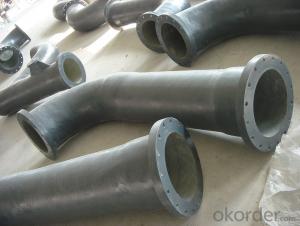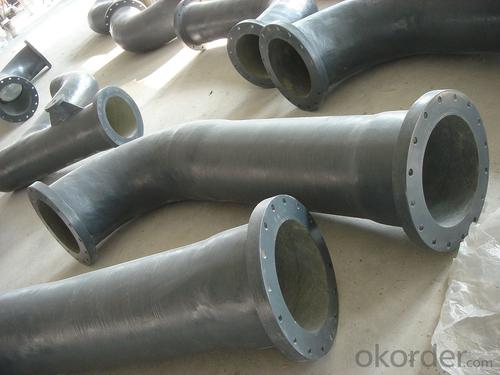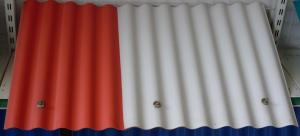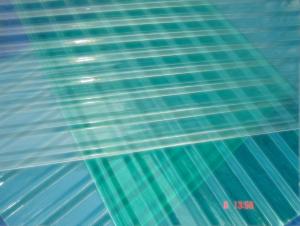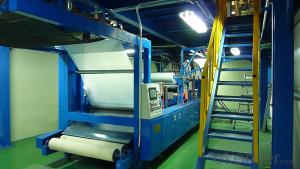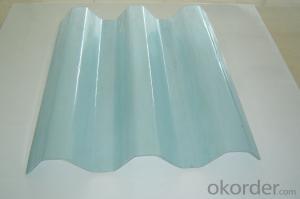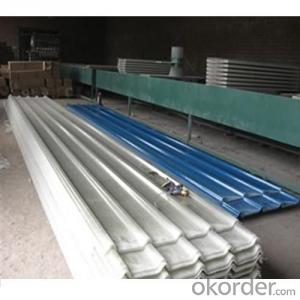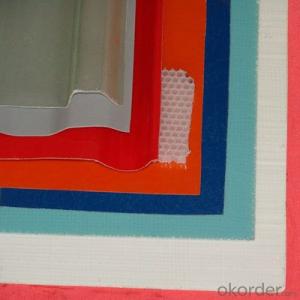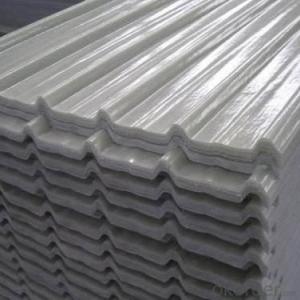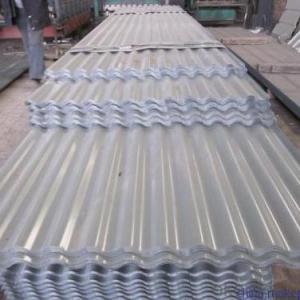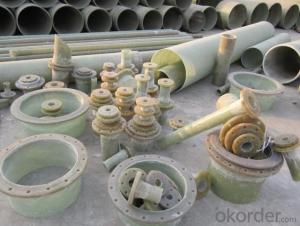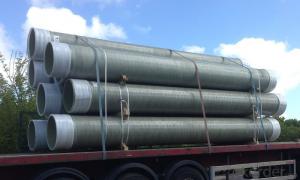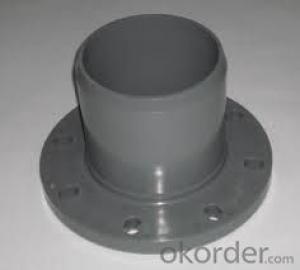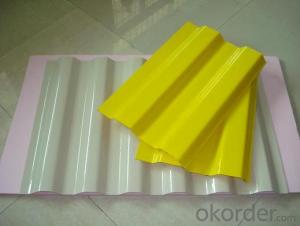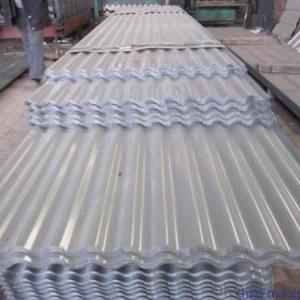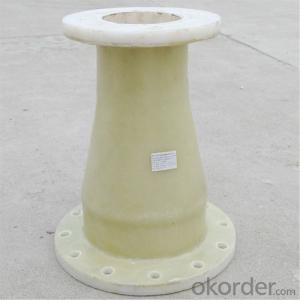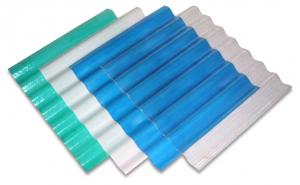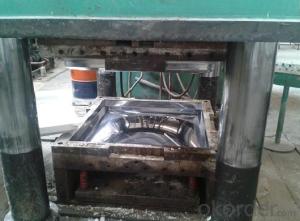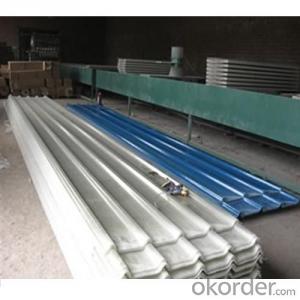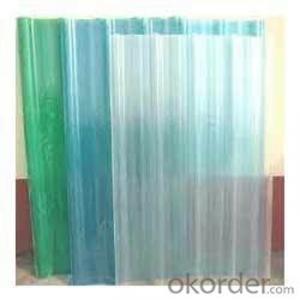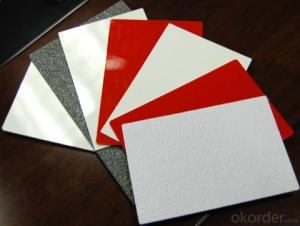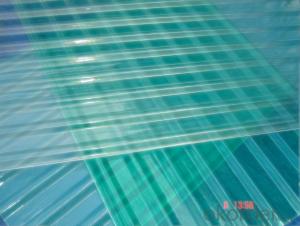Resolite FRP Roof Panels - Fiberglass Reinforced Water Pipe Fittings
- Loading Port:
- China main port
- Payment Terms:
- TT OR LC
- Min Order Qty:
- 100 kg
- Supply Capability:
- 100000 kg/month
OKorder Service Pledge
OKorder Financial Service
You Might Also Like
Specifications
FRP water pipe fittings
1.Safety
2.Applicability
3.Durability
4.Economy
FRP Pipe Fitting
1.Safety
2.Applicability
3.Durability
4.Economy
FRP Pipe Fitting
1. Good physical mechanics performance
2. Being resistant to chemical erosion and longer service life
3. Excellent hydraulic characteristics
4. Lower installation and keeping cost
5. Flexible design and shorter reform term
6. No medium pollution
1.Chemical medium transportation pipe
2.Various producing process pipe (chemical process, paper making process, polluted water treatment
process, sea water purifying process, food and drink producing process, and medicine producing process)
3.Pressure pipe for small hydroelectric power station on the ground and cycling pipe for power plant
4.Polluted water collecting and transporting pipe
5.Drink water transporting main line and tubing pipe
6.Oil field water injecting pipe and oil transporting pipe
7.Heat transporting pipe and sea water transporting pipe
8.Agricultural irrigation pipe
9.FRP set (ventilation, air-conditioner, chimney, cleaner) and piping
10.Gas drainage pipe for mine
Features
1.Medium and low pressure pipe 0.6MPa2.5 MPa
2.High pressure pipe5.5MPa24 MPa
3.Mobile gravity pipe (which can be used when the pressure is under 0.6MPa)
4.Vacuum tube, external pressure pipe or siphon
If you have interest in the FRP pipe, please provide the following parameters: media, pressure and the use of the environment (overhead or buried), temperature, stiffness requirements, connections.
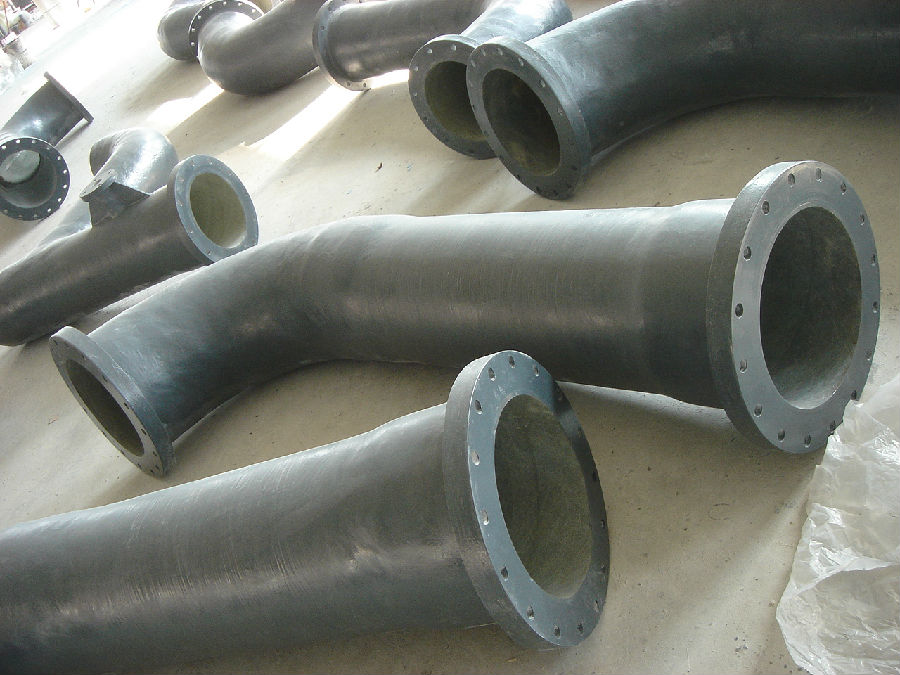
- Q: Can FRP roofing panels be used in cold climates?
- Yes, FRP (Fiberglass Reinforced Plastic) roofing panels can be used in cold climates. FRP roofing panels are known for their durability and ability to withstand extreme weather conditions, including cold temperatures. They have excellent thermal insulation properties, which help to prevent heat loss and keep the interior of buildings warm. Additionally, FRP panels are resistant to damage caused by freezing and thawing cycles, making them a suitable choice for cold climates where temperature fluctuations are common. However, it is important to ensure proper installation and maintenance of FRP roofing panels to maximize their performance and longevity in cold weather conditions.
- Q: Are FRP roofing panels resistant to chemical fumes or emissions?
- Yes, FRP (Fiberglass Reinforced Plastic) roofing panels are generally resistant to chemical fumes or emissions. FRP is known for its excellent corrosion resistance and can withstand exposure to a wide range of chemical substances without deteriorating or getting damaged. However, it is important to consider the specific chemicals involved and consult the manufacturer or a professional to ensure that the FRP roofing panels selected are suitable for the intended application and chemical environment.
- Q: Can FRP roofing panels be used for covered walkways in shopping centers or malls?
- Yes, FRP (Fiberglass Reinforced Plastic) roofing panels can be used for covered walkways in shopping centers or malls. FRP panels are lightweight, durable, and resistant to extreme weather conditions, making them an ideal choice for covered walkways. They offer excellent UV protection, preventing the panels from yellowing or fading over time. FRP panels also have a high strength-to-weight ratio, allowing for easy installation and maintenance. Additionally, FRP panels can be customized to match the aesthetic requirements of the shopping center or mall, offering a wide range of colors, patterns, and textures. Overall, FRP roofing panels are a cost-effective and practical solution for covered walkways in shopping centers or malls.
- Q: Are FRP roofing panels resistant to chemical spills or leaks?
- Yes, FRP (fiberglass reinforced plastic) roofing panels are resistant to chemical spills or leaks. FRP panels are made of a combination of fiberglass and plastic materials, which provide excellent resistance to a wide range of chemicals. The panels are designed to be non-reactive and non-corrosive, making them highly resistant to the effects of chemical exposure. This resistance is particularly important in industrial or commercial settings where there is a higher likelihood of chemical spills or leaks occurring. FRP roofing panels have been tested and proven to withstand various chemicals, including acids, solvents, and oils, without deteriorating or sustaining damage. Therefore, they are a reliable choice for environments where chemical resistance is a primary concern.
- Q: Can FRP roofing panels be used for loading docks?
- FRP roofing panels are indeed applicable for loading docks. Renowned for their robustness, long-lasting nature, and ability to withstand different elements like UV rays, moisture, and chemicals, FRP panels prove to be fitting for various purposes, including loading docks. By utilizing FRP roofing panels, one can establish a sturdy and reliable surface to bear heavy loads, thus guaranteeing the safety of both workers and equipment. Moreover, the lightweight and effortless installation of FRP panels make them a convenient option for constructing or renovating loading docks.
- Q: Do FRP roofing panels require a specific type of insulation?
- No, FRP roofing panels do not necessarily require a specific type of insulation. The type of insulation required depends on various factors such as the climate, building design, and specific requirements of the project. However, it is generally recommended to use insulation materials that are compatible with the FRP panels and provide adequate thermal resistance. Common types of insulation used with FRP roofing panels include rigid foam insulation, fiberglass batts, and spray foam insulation. It is important to consult with a professional or refer to the manufacturer's guidelines to determine the most suitable insulation for your specific FRP roofing system.
- Q: Are FRP roofing panels resistant to warping or bending?
- Yes, FRP (Fiberglass Reinforced Plastic) roofing panels are highly resistant to warping or bending. Due to their composition of reinforced fibers and plastic resins, FRP roofing panels possess exceptional strength and rigidity, making them highly resistant to deformation caused by external forces. This resistance to warping or bending makes FRP panels a reliable and durable choice for roofing applications. Additionally, FRP panels have excellent dimensional stability, meaning they can maintain their shape and structural integrity even under extreme temperature fluctuations or prolonged exposure to the elements. Overall, FRP roofing panels are known for their robustness and ability to withstand various environmental conditions without warping or bending.
- Q: Can FRP roofing panels be used for warehouses?
- Warehouses can indeed utilize FRP (Fiberglass Reinforced Plastic) roofing panels. These panels possess the qualities of being lightweight, durable, and resistant to corrosion, thereby making them an exceptional selection for commercial and industrial purposes like warehouses. Moreover, they offer superb safeguarding against severe weather elements such as UV rays, rain, and snow. Furthermore, installing and upkeeping FRP panels is hassle-free, rendering them a financially prudent roofing alternative for warehouses.
- Q: Are FRP roofing panels resistant to chemical fumes?
- FRP roofing panels are generally resistant to chemical fumes, which is one of their notable properties. They are highly regarded for their excellent resistance to chemicals, making them appropriate for environments where exposure to chemical fumes is a concern. The level of chemical resistance in FRP roofing panels may vary depending on the type of resin used in their construction. Nonetheless, as a whole, FRP panels display resistance to a broad range of chemicals, including acids, alkalis, solvents, and corrosive gases. It is important to bear in mind that despite their chemical resistance, FRP panels can still be susceptible to damage or discoloration if continuously exposed to certain chemicals over time. Therefore, it is advisable to consult the manufacturer or supplier of FRP roofing panels to ensure their suitability for specific conditions involving chemical fume exposure.
- Q: Are FRP roofing panels resistant to warping or sagging due to heat?
- Yes, FRP (Fiberglass Reinforced Plastic) roofing panels are known for their high resistance to warping or sagging due to heat. The composition of FRP panels includes fiberglass reinforcement, which provides exceptional strength and stability even under high temperatures. This reinforcement helps prevent the panels from warping or sagging, ensuring their long-term durability and performance. In addition to the fiberglass reinforcement, FRP panels are also designed to have low thermal expansion properties. This means that they have minimal expansion or contraction with temperature changes, reducing the chances of warping or sagging. The panels are engineered to withstand the heat and maintain their shape and structural integrity, making them a reliable choice for roofing applications. It is worth noting that while FRP panels are resistant to warping or sagging due to heat, proper installation and maintenance are crucial to ensure their longevity. Following manufacturer guidelines and regularly inspecting and maintaining the roof will help maximize the performance and lifespan of the FRP roofing panels.
Send your message to us
Resolite FRP Roof Panels - Fiberglass Reinforced Water Pipe Fittings
- Loading Port:
- China main port
- Payment Terms:
- TT OR LC
- Min Order Qty:
- 100 kg
- Supply Capability:
- 100000 kg/month
OKorder Service Pledge
OKorder Financial Service
Similar products
Hot products
Hot Searches
Related keywords
